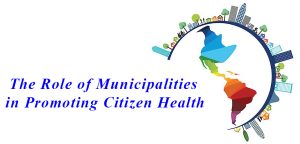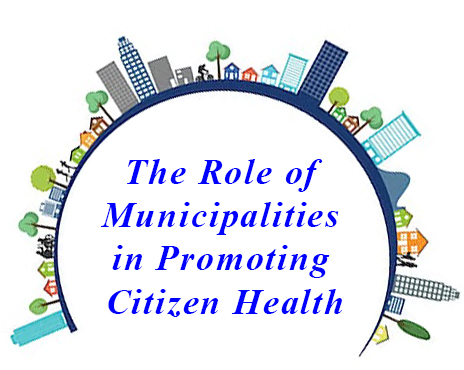
Municipalities, as local authorities and the closest level of government to citizens, play a crucial role in maintaining and promoting the public health of their communities. This role is multifaceted, encompassing a wide range of services and policies that directly and indirectly impact citizen health. This article examines the various aspects of this role and its importance.
1. Provision of Health and Environmental Infrastructure:
- Water and Sanitation: Municipalities are responsible for providing safe drinking water and ensuring proper wastewater disposal. These actions form the foundation of public health and prevent many infectious and gastrointestinal diseases. (World Health Organization, 2017)
- Waste Management: The collection, disposal, and recycling of waste in a sanitary manner are vital for preserving the environment and preventing pollution. Improper waste management can lead to disease outbreaks and contamination of water and soil. (United Nations Environment Programme, 2021)
- Green Spaces: The creation and maintenance of parks, green spaces, and urban gardens help improve air quality, reduce stress, and increase physical activity among citizens. These spaces are suitable for recreation, exercise, and social interaction. (National Recreation and Park Association, n.d.)
- Transportation: Urban planning that emphasizes the development of public transportation, walking, and cycling can help reduce air pollution and promote physical activity. (Pucher et al., 2016)
2. Delivery of Health Services:
- Health Centers: Many municipalities establish health centers or support existing ones to make primary healthcare services like vaccinations, maternal and child care, and health counseling accessible to citizens. (Local Government Association, 2020)
- Prevention Programs: Municipalities can play a significant role in promoting community health by implementing prevention programs for non-communicable diseases such as diabetes, cardiovascular diseases, and cancers. (Centers for Disease Control and Prevention, 2023)
- Health Education: Providing educational courses and awareness campaigns on various health issues can empower citizens to take better care of their health. (Public Health England, 2019)
3. Health-Oriented Urban Planning and Policy:
- Healthy Urban Planning: Municipalities can design spaces that encourage walking, cycling, and physical activity by considering the principles of healthy urban planning. Creating safe and accessible spaces for everyone, including the elderly and people with disabilities, is also of paramount importance. (Sallis et al., 2016)
- Combating Social Determinants of Health: Municipalities can play a crucial role in improving community health by reducing poverty, unemployment, and social inequalities. These social factors significantly affect people’s health. (Marmot et al., 2010)
- Environmental Health Monitoring: Municipalities can protect citizens’ health from pollution and potential hazards by monitoring the quality of air, water, and food. (European Environment Agency, 2022)
4. Community Engagement:
- Involving Citizens: Municipalities should involve citizens in the planning and implementation of health projects to increase their awareness and responsibility.
- Cooperation with NGOs: Cooperation with non-governmental organizations and community groups active in the field of health can help improve the effectiveness of municipal programs.
Importance of the Role of Municipalities:
Citizen health is not only a basic right but also an investment for sustainable development. Municipalities, as the front line of service delivery to citizens, can help improve the quality of life of individuals and the progress of society by fulfilling their duties in the field of health.
Challenges and Solutions:
Municipalities face challenges such as a lack of financial resources, specialized human resources, and a lack of intersectoral coordination in carrying out their duties. However, these challenges can be overcome with proper planning, allocation of appropriate resources, utilization of new technologies, and the active participation of the community.
Conclusion:
The role of municipalities in maintaining and promoting citizen health is essential. Municipalities can provide a healthier, more vibrant, and dynamic environment for the lives of citizens by managing resources properly, implementing effective programs, and involving the community. Investing in health is investing in the future of society.
References:
- Centers for Disease Control and Prevention. (2023). Chronic disease prevention and health promotion. https://www.cdc.gov/chronicdisease/index.htm
- European Environment Agency. (2022). Air quality in Europe 2022 report. https://www.eea.europa.eu/publications/air-quality-in-europe-2022
- Local Government Association. (2020). Health and wellbeing. https://www.local.gov.uk/topics/health-and-care/health-wellbeing
- Marmot, M., Allen, J., Goldblatt, P., Boyce, T., McNeish, D., & Marmot Review Team. (2010). Fair society, healthy lives: The Marmot review. https://www.instituteofhealthequity.org/resources-reports/fair-society-healthy-lives-the-marmot-review
- National Recreation and Park Association. (n.d.). The Benefits of Parks. https://www.nrpa.org/our-work/Three-Pillars/conservation/the-benefits-of-parks
- Public Health England. (2019). Health matters: A focus on prevention. https://www.gov.uk/government/publications/health-matters-a-focus-on-prevention/health-matters-a-focus-on-prevention
- Pucher, J., Dill, J., & Handy, S. (2016). Infrastructure, programs, and policies to increase walking and bicycling: an international review. Preventive Medicine, 87, 146–162.
- Sallis, J. F., Floyd, M. F., Rodríguez, D. A., & van Dyck, D. (2016). Active environments and health: progress in environmental interventions to promote physical activity. Annual Review of Public Health, 37, 167–190.
- United Nations Environment Programme. (2021). Global waste management outlook 2024. https://www.unep.org/resources/report/global-waste-management-outlook-2024
- World Health Organization. (2017). Water, sanitation and health. https://www.who.int/news-room/fact-sheets/detail/drinking-water




